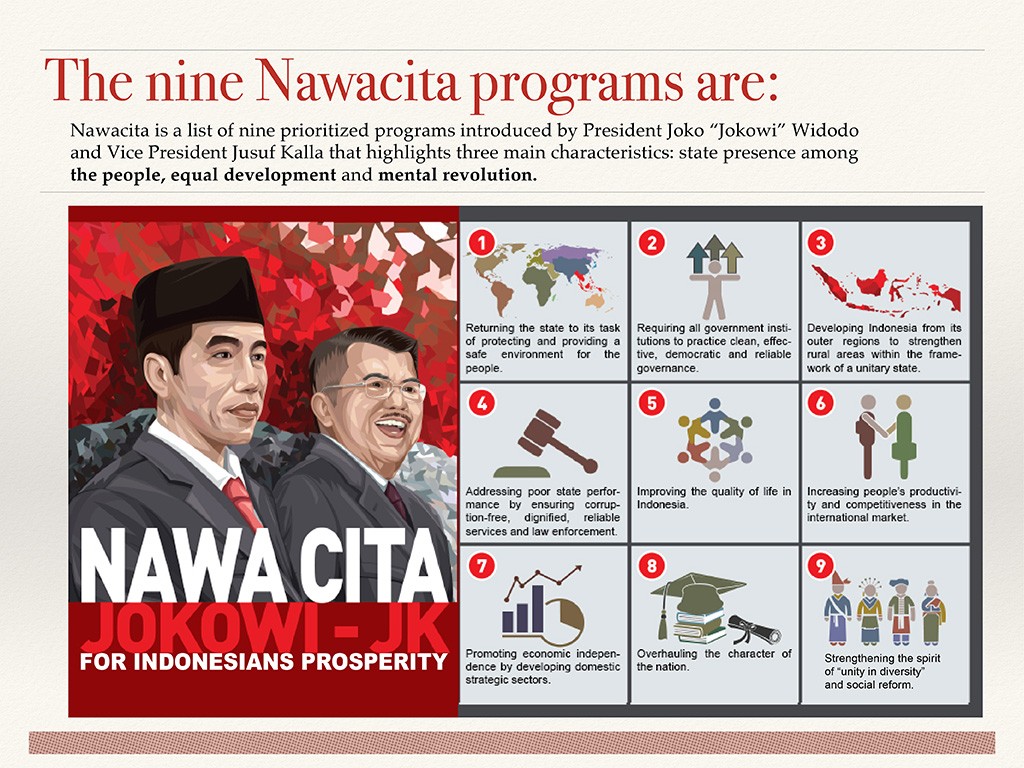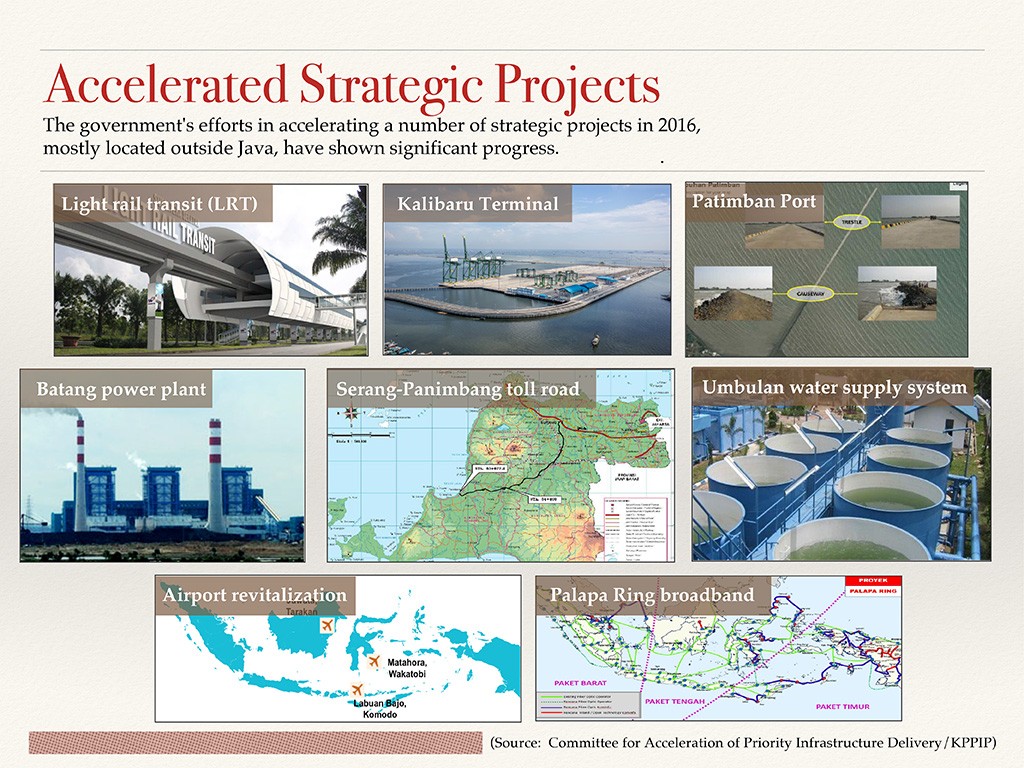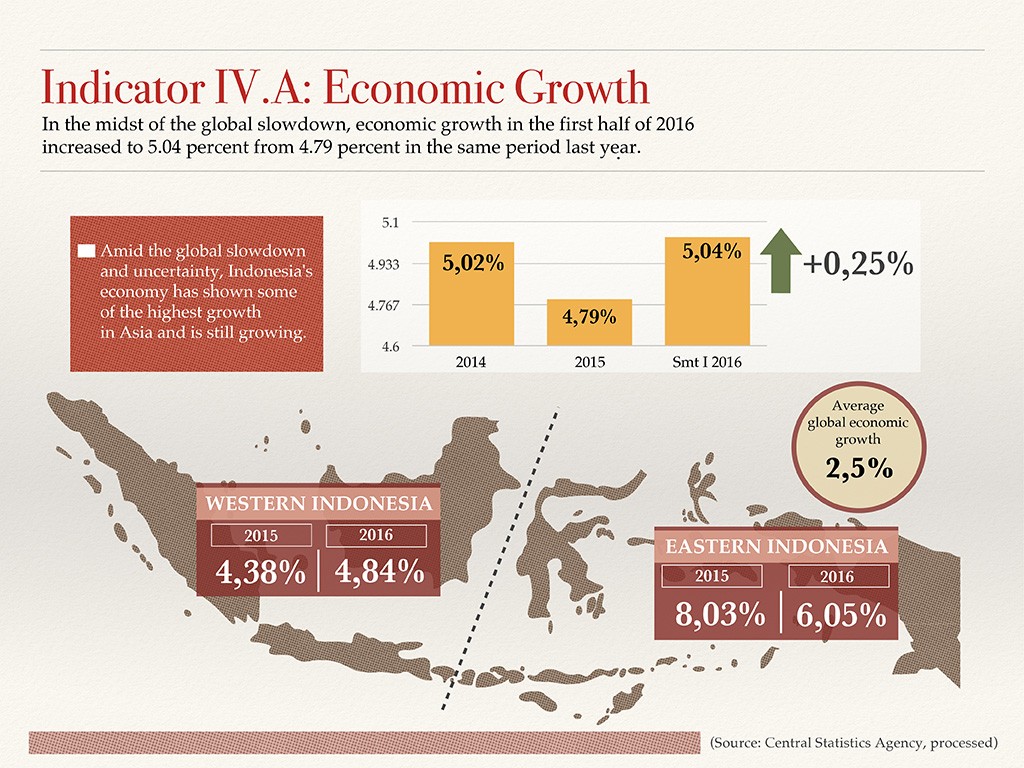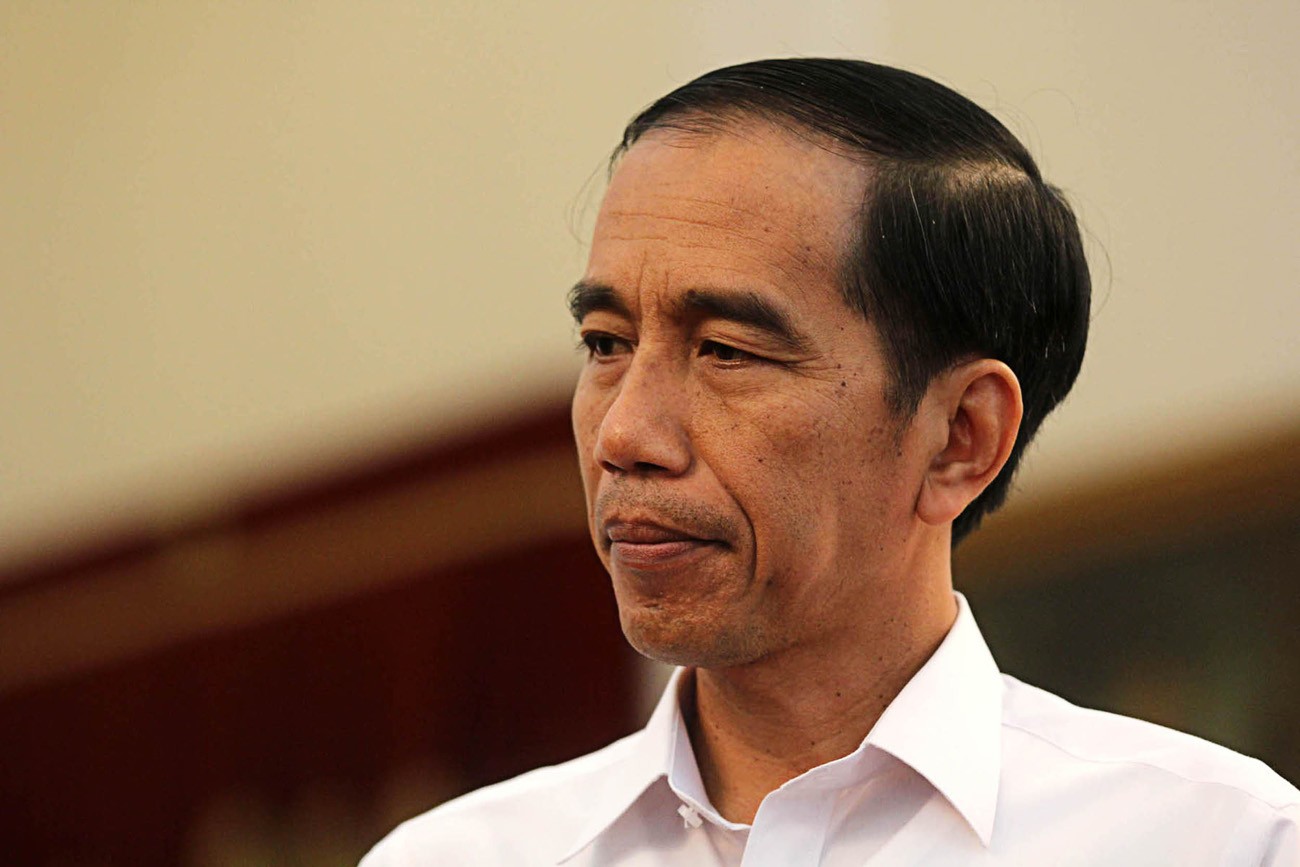Popular Reads
Top Results
Can't find what you're looking for?
View all search resultsPopular Reads
Top Results
Can't find what you're looking for?
View all search resultsJokowi’s second year: the challenge on the fiscal side
Change text size
Gift Premium Articles
to Anyone
F
orget the mumbo jumbo speculation on the impact of external effects on the Indonesian economy, as the long-boring prediction of Federal Reserve’s rate hike and Brexit’s “terrifying” impact are yet to have any effect on the country.
It is more sensible to examine the economic challenges during the second year of President Joko “Jokowi” Widodo’s administration from a domestic point of view. And, one can easily find a clue, about what the government is most worried about in the economy, from recent political changes.
The cabinet shake-up in July, which brought back Sri Mulyani Indrawati, and the appointment of duo Ignasius Jonan and Arcandra Tahar in October to helm the Energy and Natural Resources Ministry, shows the need for urgent changes in the economic squad to address the fiscal deficit and the current account deficit (CAD).
After recklessly setting a huge tax revenue target for 2016 at Rp 1,54 quadrillion (US$118.27 billion), Jokowi seemed to have understood his mistake and tried to mend it by hiring Sri Mulyani, an economist and then-managing director and chief operating officer at the World Bank, to clean up the messes.
Rationalizing the budget posture, by slashing spending in several areas as well as the tax revenue target, was the first step she took. The tax revenue target was slashed by Rp 221 trillion, or 14.35 percent to Rp 1.3 quadrillion, the biggest tax revenue target revision in Indonesian history.
 Data(Source:/Presidential Office)
Data(Source:/Presidential Office)
“We acknowledge that the 2016 state budget, apart from having a quite ambitious revenue target, also included additional revenues from the amnesty,” Sri Mulyani said on her first day in office.
In regard to that, she set a leaner budget for the year ending December 2017 with estimated state expenditures of Rp 2 quadrillion and revenues of Rp 1.74 quadrillion. The budget deficit, which was previously set at 2.15 percent, was revised to 2.7 percent.
She also carried out the long-planned tax amnesty program, eyeing a windfall of Rp 165 trillion in revenue from penalty fees. As of Oct, 20 the directorate general of taxation has reached 59 percent of the target, worth Rp 97.6 trillion.
Will that be enough? Probably not, if the government sticks with its ambitious growth target of 5.2 percent in 2016 and 7 percent in 2017. High economic growth requires massive public consumption and investment, both of which have seen their lights growing dimmer recently amid the global and domestic economic slowdown.
Thus, the source of growth will be from the government. Several delays in infrastructure projects, in which the Rp 300 trillion of government spending supposed to oil the economy, have signaled the need for other sources of spending aside from infrastructure.
 Data(Source:/Presidential Office)
Data(Source:/Presidential Office)
However, Indonesian law requires the budget deficit to be kept below 3 percent of gross domestic product (GDP), hampering any effort to spend further beyond the state revenue.
In this situation, Sri Mulyani might prepare a counter cyclical move as her last call to shape the economy, meaning that she will expand the deficit level above 3 percent, by issuing a Government Regulation in Lieu of Law. But before she can do that, the country must first lower the CAD, a job in which assistance may be provided by the duo Jonan and Arcandra.
Oil-gas deficit
The repositioning of Jonan and Arcandra—both previously sacked from the cabinet—was to address the reform in the energy and mining sector, according to Jokowi and Coordinating Maritime Affairs Minister Luhut B. Pandjaitan.
Which problem should be addressed first? Executive director Komaidi Notonegoro of Jakarta-based energy research organization ReforMiner Insititute said the upstream industry must get priority as the root of the problem in Indonesian energy laid there.
While many parties applauded Jokowi’s strong moves in cutting the fuel subsidy and liquidating Pertamina Energi Trading Ltd (Petral) and its subsidiaries, both measures only improved the downstream industry and not the upstream industry.
 Data(Source: /Presidential Office)
Data(Source: /Presidential Office)
Turning itself into a net oil importer in 2004, when domestic oil output sharply declined amid skyrocketing consumption, Indonesia saw a worsening dependency on oil imports year by year.
Indonesia began to post a CAD in the fourth quarter of 2011 and it has remained in deficit ever since due to the country's ballooning oil and gas import bill. According to World Bank data, oil and gas accounted for 29 percent of total trade from 2010 to 2014.
In the first quarter of 2016, the CAD reached $4.7 billion or 2.14 percent of GDP, worse than that of the same period in 2015 at 1.94 percent. Oil and gas recorded a deficit of $0.8 billion.
Analyst at Daewoo Securities Indonesia Christine Natasya said the energy reform could be a solution to tackle the CAD. She urged Jokowi to complete the revision of Government Regulation No. 79/2010 on cost recovery to attract investment in oil production.
She also expects the government to lower the cost recovery by 30 percent for new oil and gas projects that are yet to be started. The government previously planned to lower the cost recovery target to $10.4 billion this year and further slash it next year.
“Although this means lower tax revenue, we believe it will be paid off in the future such as by narrowing Indonesia’s current account deficit. Currently, Jonan and Arcandra are working on the best possible outcome for investors as well as the government,” she said on Thursday. (ags)
-----
The Jakarta Post reporter Ayomi Amindoni contributed to this story.










